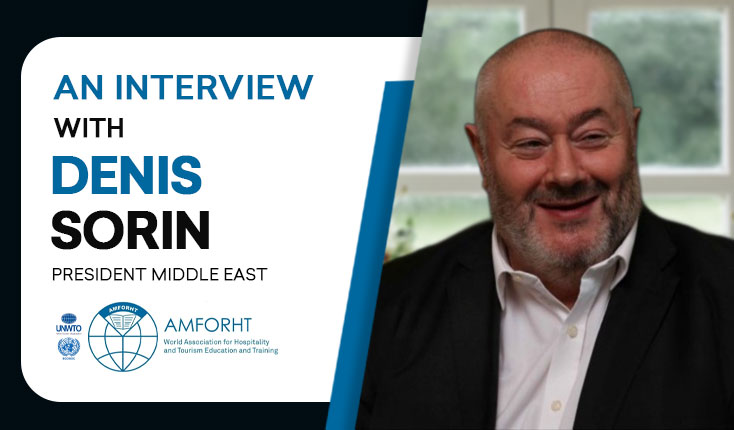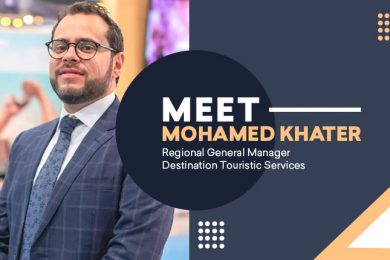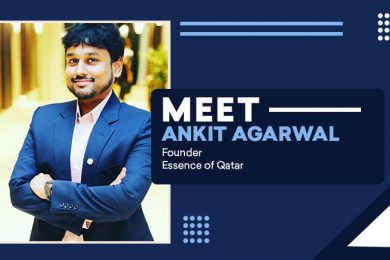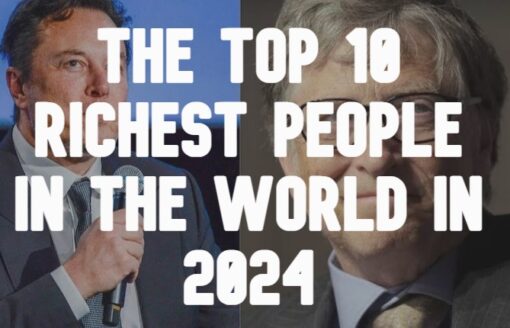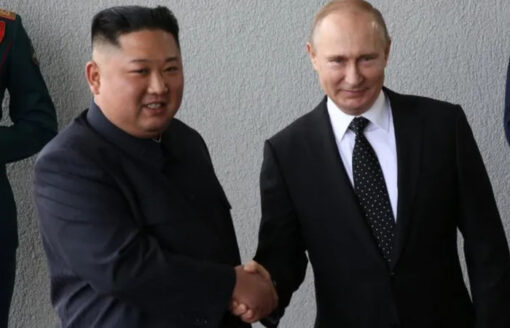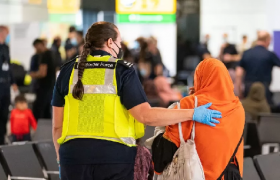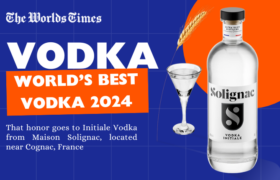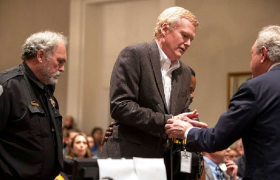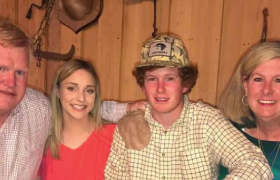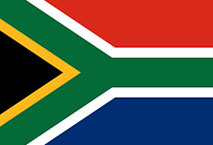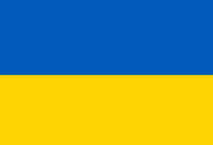The interview provides insights into AMFORHT’s (an NGO affiliated with UNWTO) initiatives in developing sustainable tourism strategies through education and training. Denis, AMFORHT’s President for the Middle East, emphasizes the importance of local support for sustainable strategies and the role of education in achieving long-term success. AMFORHT collaborates with governments globally, tailoring hospitality and tourism education to align with sustainable tourism goals. The recent Ivory Coast partnership exemplifies their commitment to ensuring the success of sustainable tourism development.
Education and Training Overview
We started the interview by asking, “Can you provide an overview of “AMFORHT’s” current initiatives in developing sustainable tourism strategies through education and training?”
Denis replied, “AMFORT, a UNWTO affiliate, is in charge of assisting governments worldwide to make their sustainable tourism strategy a success.
When you say ‘sustainable’, you mean long-term. For a sustainable tourism strategy to be effective, you need first and foremost the support of the local population. As Zurab Pololikashvili, UNWTO Secretary General, says, it can only be achieved if people are properly sustainability and tourism educated from high school to university.
AMFORHT is in charge of providing tailored made hospitality and tourism education and training adapted to each government strategy. The latest example is the convention signed last December between the Ivory Coast and AMFORHT to ensure that their “Sublime Côte d’Ivoire” sustainable tourism development strategy will be a long-term success.
Strategic Aims and Objectives
The Worlds Times: What specific objectives and goals does “AMFORHT” aim to achieve through its sustainable tourism strategies?
Denis replied, “Throughout the years, the hospitality / tourism industries have been accused to develop themselves without any consideration for the local populations and the environment. I will not deny that it has been true in many locations throughout the world, even if it hasn’t always been the case. Fortunately, things are changing for the better.
Today, governments are getting more involved, as they see sustainable tourism a mean to better their countries in all possible ways, increase revenue, and enhance their image. According to Statists, travel and tourism contribution to GDP worldwide was 7.6% in 2022, expected to be 9.2% in 2023 (it’s still too early to get the actual figures for last year)… and a whopping 11.6% in 2033!
As you see, the tourism industry is taking each year a greater part of our countries economy. Hence, countries are already fiercely competing against each other even if thousands of kilometers separate them – distance doesn’t matter anymore with low cost flights taking year on year a more important part – despite environmentalists take on the issue.
According to a June 2023 IATA report, after a low year COVID-related 2020, airline traffic keeps growing steadily all the way until 2041! AMFORHT job is to accompany governments to shift to sustainable tourism through education and training in hospitality and tourism.
You have two main cases:
First those countries with a strong tourism base in need of reevaluating their performance (think sinking Venice, for instance) for a more respectful tourism – respectful towards people as well as the environment (nature as much as historical cities). Secondly, you have those countries who wish to develop a not performing enough or not yet existing tourism industry.
Ivory Coast is a perfect example. In that case, we work together to build a sustainable tourism sector. Again, sustainability means keeping in mind the ‘environment’ in a traditional way, but also local populations, respecting their culture, traditional economy, etc.
Tourism shouldn’t be imposed anymore but welcomed by all.
This is where AMFORHT can help.
Crafting Sustainable Futures
The Worlds Times: How does “AMFORHT” design and implement education programs to foster sustainability within the tourism industry?
Denis replied, “There is no ‘off the shelf’ solution.
Once a government wishes to work with AMFORHT, we review the current hospitality and tourism status in that country, within the parameters set by the sustainable tourism strategy. Following this step, we design a plan where education and training play the greater part; plan that needs to be approved and always monitored by the authorities. While it is easy to have a pretty good understanding of what hospitality education and training mean, when it comes to tourism it is a tad more complicated:
Tourism encompasses a lot more than tour guides and buses. Airlines and the industries around airlines, all types of ground and marine transport (i.e., taxis, cruiseliners, barges) and the industries necessary for transport to perform, etc. are one way or another part of tourism. It is therefore necessary to educate the younger generations to all these jobs, as well as train those already working to newest technologies and know-how. Throughout the years (UNWTO created AMFORHT 50+ years ago), we developed a large network of hospitality and tourism / tourism-related schools, training centers and universities all around the world. Once the requesting government approved the plan, we work with those education and training facilitators, developing with them the required curriculums, which they will implement under AMFORHT supervision. It is up to us to ensure that sustainability is part of these curriculums from high school to universities. As I said before, these projects are long-term, running 5 to 10 years in average.
Exemplary Training Initiatives
The Worlds Times: Can you share examples of successful training initiatives that have been instrumental in promoting sustainable practices among tourism professionals?
Denis replied, “Allow me not to discuss previous projects as our goal is not to be under the spotlights:
AMFORHT is an NGO that aims at addressing governments and hospitality and tourism group’s needs, thus helping them being sustainability conscious and implement a successful strategy. Successes are theirs, even if we were instrumental in achieving that success. Let me advise you to follow AMFORHT LinkedIn page and read our blog on our Website (amforht.org) to get a glimpse of what we are doing.
Engaging Stakeholders for Sustainable Tourism
The Worlds Times: How does “AMFORHT” involve various stakeholders, such as local communities, businesses, and government bodies, in its efforts to promote sustainable tourism?
Denis replied, “AMFORHT cannot succeed without involving the entire local, regional and almost always national communities. Having the government bodies involved is easy as we are getting into a project mainly on government request. Because we are actively participating to the education and training of the local population, communities quickly understand that each project means children’s better education, more jobs for all (through the educational system but also training), a better life overall. Businesses immediately realize their interest in facilitating and participating to their local project as they are getting better, more skilled employees, new markets for an easier development, etc.
Measuring Success
The Worlds Times: What metrics or indicators does “AMFORHT” use to measure the impact of its education and training programs on the sustainability of tourism practices?
Denis replied, “When we develop the plan to be proposed to the requesting government, we propose at the same time the metrics that will inform them of their strategy success.
While those metrics differ from once country to another, in the same way plans have very little in common depending of each country economy, history, population education level and more, some are common:
– Population literacy (we don’t start at the same level everywhere, but we monitor its improvement every 1 to 2 years)
– Number of green new building certifications (i.e. IGBC certification)
– Paris Accord implementation official metrics
– Number of Sustainable Hospitality Alliance approved certifications
– Number of Green Tourism (and similar) certifications
What’s more, we verify the education and training effectiveness continuously:
– Through regular education tests and exams
– Real life training efficiency through surveys sent to travelers and guests, in partnership with the local hotels and tourism players.
Overcoming Resistance to Change
The Worlds Times: What challenges has “AMFORHT” encountered in implementing sustainable tourism strategies, and how has the organization addressed or overcome these challenges?
Denis replied, “This can be answered with only 3 words:
Resistance to change.
When AMFORHT is called to work on a project, it is not like changing a process in an organization – and that only can prove to be challenging. It has a major impact on everyone, even if they are not directly concerned by the project:
What about having to deal with overseas foreigners in a remote region that never ever met one? Or changing all the procedures in a hotel to make it ‘green’ and implement internationally approved hospitality processes and regulations. This can be very unsettling.
AMFORHT, and their partners, must take resistance to change to a new level – often at country-wide level – and address it the best possible way, according to the local culture.
Driving Sustainable Tourism
The Worlds Times: How does “AMFORHT” incorporate innovation and technology in its educational approaches to keep pace with the evolving needs of the tourism industry?
Denis replied, “As I mentioned before, we work with the best local and international schools, universities and training centers. It means that they must provide the latest technologies to their students and trainees, as well as the best expertise to the most recent industry techniques.
For example, last November AMFORHT held its last 2023 international conference at Institute Lyfe in Lyon, France. This institute is a perfect example of a hospitality and culinary school (with students coming from almost all continents) with a great past (it was formerly known as Institute Paul Bocuse), and the ability to constantly modernize itself for their students to be properly knowledgeable when they will join hotels anywhere in the world.
Global Collaborations
The Worlds Times: Can you discuss any global partnerships or collaborations that “AMFORHT” has established to enhance the reach and effectiveness of its sustainable tourism initiatives?
Denis replied, “We developed, and keep developing, partnership with a great number of schools, universities and training centers almost everywhere – world famous Sorbonne University being one, or École Savignac (extremely active in France and Africa) are some of the names I can mention. Furthermore, we are partnered with the World Tourism Association for Culture & Heritage, the Pacific Asia Travel Association (PATA), Skal, and many more. The huge network of hospitality and tourism associations, schools, universities and training centers – not always international known, but extremely efficient and professional in their own field – is our guarantee of effectiveness and care.
Why care? Because for an organization to join the AMFORHT network, they need to demonstrate that they care for the environment and the people they are serving.
To summarize, AMFORHT is present in 80 countries (and counting!), and partners with over 370 universities, schools and training centers around the world.
Strategic Evolution
The Worlds Times: How does “AMFORHT” adapt its education and training strategies to align with emerging trends and changing dynamics in the tourism sector?
Denis replied, “I believe I somehow already have answered that earlier.
In a nutshell, there is not one curriculum that addresses all types of government requests, as there isn’t one type of tourism. We ensure that the action plan we are proposing tackles the best possible way the requesting government sustainable tourism strategy. To that end, with our local and regional partners, we develop the appropriate curriculums from high schools to university, as well as developing training courses to bring up to expectations those already working. AMFORHT own requirement to those partners is that they use the latest user-friendly technology and know-how there is – taking the time to teach the use of technology to those who are far from it -, while being strong sustainability advocates.
A final word: Denis Sorin’s message to our viewers
Lastly, we asked, “Would you like to say anything else to our viewers?”
AMFORHT is not a business. It is an NGO who believes that sustainable tourism is the best way to boost “our economies and societies”, as Zurab Pololikashvili says. We are building bridges between people and countries. Hence we are welcoming to our network anyone willing to participate to this great adventure, sponsors (being an NGO, we live on sponsorship), quality schools, universities, and training centers. “Denis concluded
Connect Denis Sorin through his card
Visit AMFORHT to learn more
Read More Interviews Below:
A Conversation with Gordon Cowan, CEO of Cybrilliance
QBOX TRADING: Transforming Shipping Containers
What is Saudi Arabia doing to adopt the service-oriented culture
